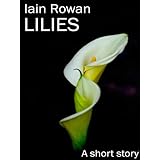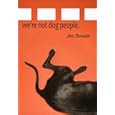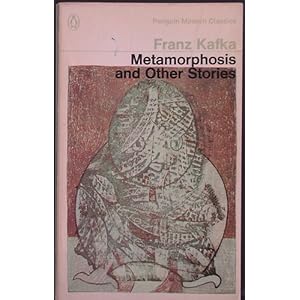
This week's guest blog comes courtesy of
Iain Rowan, who writes crime and horror short stories, amongst others. One of his stories, Lilies, has been featured in the Mammoth Best Of Horror Anthologies edited by Stephen Jones. Those of you with any interest in literate and intelligent weird fiction will already know what a big deal this is; to those who don't, I will just say that unlike most things that say "Best Of" on them, Stephen Jones anthologies actually
are. And Lilies, also available as a standalone e-book, fully justifies its inclusion.
You'd expect such an author to write a great blog post defending short stories wouldn't you? You betcha.
Take it away Iain...
There are two ways to defend the short
story, an easy way and a harder way.
The easy way is this. I say: read
Chekhov and Carver, Joyce and Kafka, Gogol and Murakami. Or I say: read
Aickman and Machen, Ballard and Gilman, Bradbury and King. Or better still,
read all of them, and more.
Job done, time for tea.
That makes a dull blog post though, so
I will try the harder way, and explain why I love reading and writing short
fiction. There are people who would never choose to read a short story,
who don’t see the point of short stories, who don’t like short stories – you
may be friends with these people, you may work with them, or you may see them
on the street. Don’t be frightened by them – they mean no harm, but they do
need your help, so please give generously. Anthologies, collections, whatever
you can spare.
You may be one of these people. Don’t
feel bad. Well, feel a little bad, because you are weird
and more than a little wrong. But you can fight this thing. We’re with you.
Well, a few apprehensive steps to the side, because of the whole weirdness
thing, but with you in spirit.
I want to start with my defence of
short stories by pointing out a way in which novels are better than them. With
a good novel, you can lose yourself for hours, days, in a world of someone
else’s imagination, that total immersion when the world of the book starts to
feel as real as the one that you live in. You don’t get that with short
stories. But that’s not a failing, because that’s not what they do.
Short stories do something different.
They are not little novels. They are not novels with lots of words left out.
You don’t get immersion, you get a glass of icy water thrown in your
face. Bear with me, it’s more attractive than it sounds. While one of the
charms of the novel is the room for digression and expansion, the beauty of the
short story is the merciless concision it imposes. The short story ditches all
that is dressing, it strips back all that is luxury, and it pares everything
down to the single purpose of the story that is being told. It excludes most
things, but in doing so attempts to capture one really important thing, whether
that is an essential, startling revelation about what it means to be human, or
scaring the living shit out of the reader when they turn the lights out later
that night.
One of the reasons why I think some
genres work so well in the short form is that they can be read at one sitting.
That kind of immersion in the story works well where the atmosphere that the
writer builds is critical to the genre, and that’s why for me there will never
be a novel of the supernatural that is as great as the best short stories.
Not only can short stories be read at
one sitting, but they can be written in one too. Not all of my own stories have
been written in this way (for that I’d need a better attention sp—hey look, a
pony) but I like the continuity of tone and thought that you get writing the
entire piece in one go, or over just a couple of sessions.
I have seen advice to writers which
suggests starting with short stories, as if they are children’s bikes that
you wobble along on until you are big enough and brave enough to take the
stabilisers off and ride your way to a fat 120,000 word novel with as many
characters as pages. This is bad advice. If you want to write a novel, you
should write a novel. If you want to write a short story though, write a short
story.
Precision, concision, graceful economy.
A novel can bring the cumulative weight of the development of plot and
character to create an emotional response in the reader, but a good short story
has to have the magic to do so in a instant. One line, one paragraph, one
moment of terror or surprise, beauty or revelation. There’s skill, and craft,
and art in that.
The novel is an album (some novels,
like some albums, are sprawling three-disc concept albums with gatefold
sleeves). The short story is the killer three minute single. It starts, hooks
you, smacks you around the face, and then when it’s just got started, it stops,
leaving you wanting more. But once you’ve heard it, it’s there in your head for
years.
So there you have it. My defence of the
short story and a tortured analogy which, possibly for the first time, allows
the direct comparison of Justin Bieber to Ernest Hemingway. Thanks for reading
it.
Lilies, mentioned above, is available on Amazon (UK | US).
Nowhere To Go is a collection of Iain’s
previously published short crime fiction. (Amazon UK | US | Smashwords). Read more
at his website.











